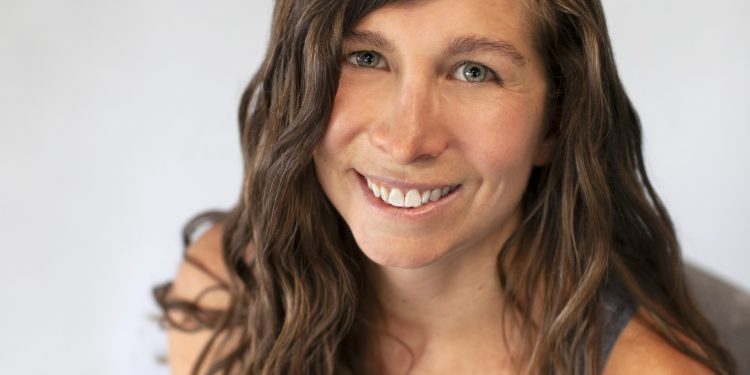Article and photos by Amy Zellmer, Editor-in-chief
In June 2009, Kate D’Orazio flew to Mississippi to visit her husband, who was at Air Force Reserves training.
After an evening of dining out and celebrating their time together, her husband found her on the floor of their room. She was unconscious and bleeding from the back of her head. After they got her cleaned up, they went back to bed.
The next morning, Kate assumed she just had a hangover and continued her visit. A few days later as she flew home, she knew something was wrong because she had excruciating pain in her head and was throwing up.
Kate went back to work, even though she struggled with her symptoms and vomited into a wastebasket by her desk. They sent her home, and she saw her doctor, who sent her out for a CT scan and x-rays. He told her she just had a concussion, and she should feel better in a few weeks.
Kate had several concussions in her life as an athlete, as well as a broken nose and several hospitalizations, but she always bounced back and never struggled with any lingering symptoms.
At the end of July, her husband came home and saw Kate was getting worse. She went to the neurologist, who did an MRI and put her on amitriptyline, an antidepressant prescribed for people who don’t get better. She continued seeing the neurologist, but he had no answers for her, and was of no help.
In October Kate was attending a festival at church when a girl pulled a chair out from under her as she was sitting down. The fall knocked her out for 45 minutes and she was hospitalized. After a battery of tests, doctors concluded she had complex migraines and her autonomics weren’t working, so she continued to see the neurologist for follow-up care.
Kate was losing time and staring into space, so the doctor prescribed anti-seizure meds thinking she was having absence seizures. She could no longer drive, her headaches were getting worse, and stimuli often made her nauseous enough to make her vomit. She often thought at that time, “I guess this is just how I am now.” She was giving up hope.
In her quest to find answers, Kate had testing done for gene mutations, which showed nothing. She tried acupuncture and massage therapy, but nothing helped. She struggled to find the energy to even consider trying a new therapy, and was discouraged because nothing worked, but her husband kept pushing her, saying, “We have to keep trying.”
In 2013, Kate and her husband moved to Colorado, where she started seeing a neuropsychologist. She tried doing EEG brain mapping and controlled breathing, yet nothing helped. A Google search revealed Integrated Brain Centers in Colorado. Her aunt told her about Dr. Carrick and how he had helped hockey player Sydney Crosby, and suggested Kate consider Functional Neurology. Kate was skeptical, as nothing had helped her thus far, but in July 2014, she gave Integrated Brain Centers a try.
Dr. Shane Steadman was different than anyone she had seen. He was confident he could help her through nutrition, brain-based exercises, adjustments, and supplements. She agreed to go all-in 100% and did an eight-week elimination diet. When they reintroduced foods, they found she had sensitivity to dairy, wheat, potatoes, and nightshades (foods including potatoes, tomatoes, peppers, and more).
Kate had to shift her way of thinking about food, as she had a deep love of food and enjoyed trying different things. She started to think of food as a way to nourish her body.
As she began her treatment, she noticed little changes, but didn’t feel substantially better yet. However, after about six months of treatment, she experienced major improvements: she hadn’t had a major headache in weeks, and her balance was improving.
“The entire staff motivated me and made me feel encouraged to follow the plan and make the commitment to get better. I felt like I had the whole team on my side! They believed in me and I believed in them,” said Kate.
Dr. Steadman explained Kate’s injury was close to her cerebellum, and her body tensed to keep her upright instead of falling over. He told Kate her headaches weren’t actually migraines, but were from her body constantly tensing. Once her headaches and nausea were eliminated, everything else started feeling better.
In regards to her recovery, Kate stated, “I’m in the best shape of my life right now!” She is currently enrolled in a masters in clinical mental health counseling program at Denver Seminary. She wants to help people who have experienced trauma.











